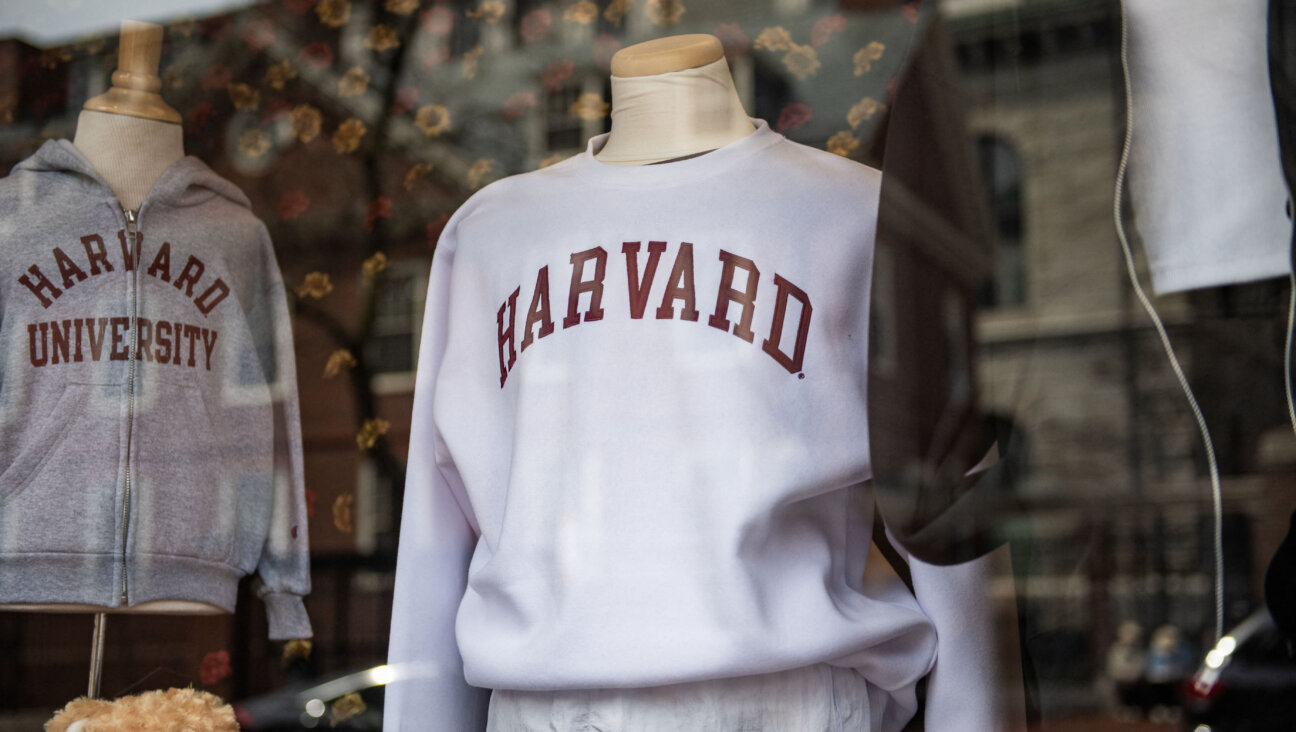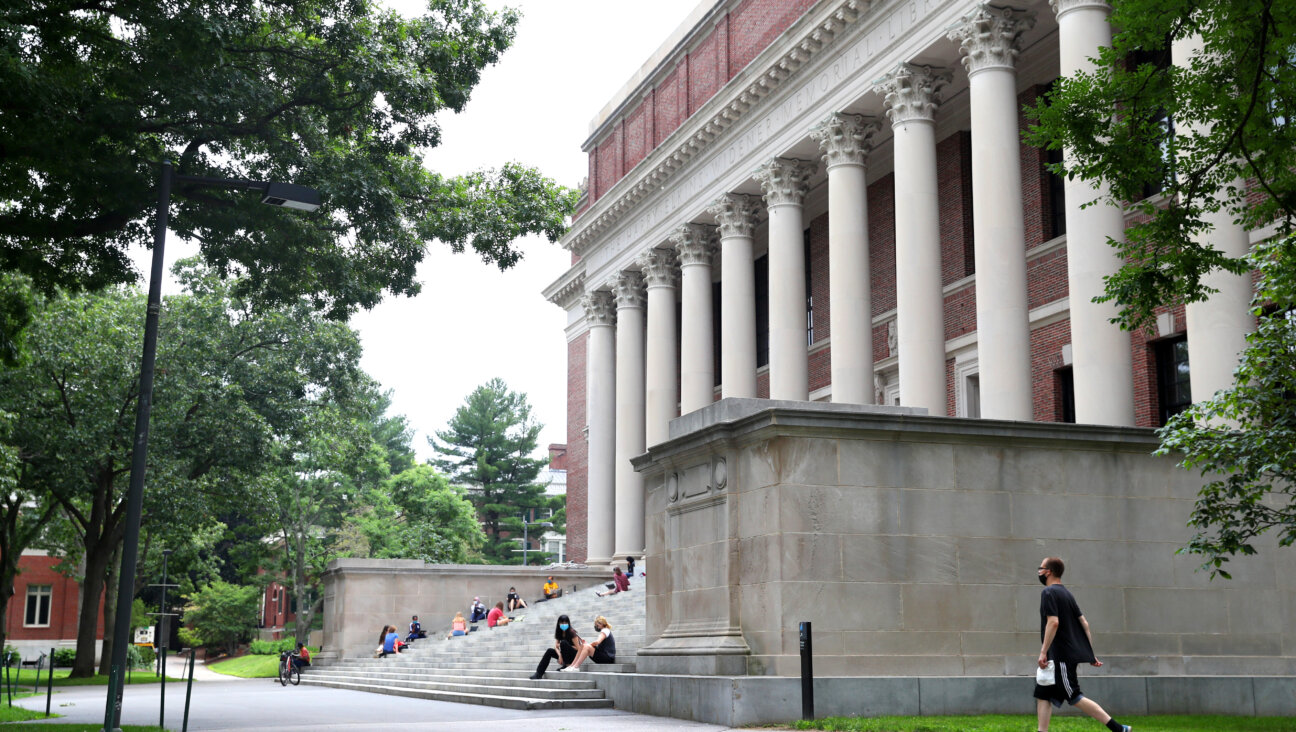Survey Shows Jewish Community Liberal and Engaged
The most fervent believers from nearly all faith groups are still far more likely than their less observant counterparts to lean Republican, but Americans with varying degrees of religious observance show broad agreement on a range of social issues, including the environment and support for the poor, according to a new study.
The survey, released June 23 by The Pew Forum on Religion & Public Life, provides a detailed snapshot of the theological and political views of religious groups ranging from Jehovah’s Witnesses to Jews, based on interviews with 35,000 Americans. Overall, it found that views on such controversial social issues as abortion and homosexuality remain strongly influenced by level of observance and religious affiliation, with Mormons and Protestant evangelicals tending to be the most politically and theologically conservative, and Jews, Buddhists, Hindus and atheists among the most liberal.
At the same time, during an election year in which both parties are competing hard for religious voters, the survey suggests several bright spots for Democrats. In total, only slightly more than a quarter of respondents said they were happy with the overall direction of the country, while among Americans who pray at least daily, a greater number consider themselves Democrats (44%) than Republicans (40%). Catholics — a key swing block that tends to closely mirror the electorate as a whole — backed Democrats over Republicans by a margin of 48% to 33%.
“The conclusion that the Democratic Party has reason for optimism with respect to the views of variety of religious groups is true,” said Greg Smith, a Pew research fellow. “One of the things we show in this report is that religious groups, including the evangelical population, are internally diverse — including in terms of racial and ethnic diversity — but whether or not that will actually result in more Democratic votes come November remains to be seen.”
The report, which also includes a host of questions about religious beliefs, is the second study that Pew has released based on a nationwide survey conducted in 2007 from May 8 to August 13. Last February, the organization released a report detailing the country’s religious demographics, which showed a high degree of fluidity between faith traditions.
Pew’s latest study paints a picture of a Jewish community markedly more liberal than most other faith traditions and exceptionally engaged in politics.
Overall, 66% of Jews identify as Democratic or Democratic leaning, a percentage surpassed only by members of historically black churches, 77% of whom identify with Democrats. On abortion, 84% of Jewish respondents said the procedure should remain legal in most or all cases — a level of support that slightly exceeded that shown by atheists and agnostics and was substantially higher than any other religious group, except for Buddhists. When it comes to the role that religion should play in politics, only atheists are more likely than Jews to say they are worried that the government is getting too involved in issues of morality.
In one key policy area— foreign affairs — Jews showed markedly different views than Americans as a whole. While a majority of Americans (55%) believe the United States “should pay less attention to problems overseas and concentrate on problems here at home,” the result was virtually flipped for Jewish respondents, 53% of whom said they believed that America should remain active in world affairs. That was the highest percentage of any group in the survey.
In terms of overall political engagement, Jewish respondents to the Pew survey were also more likely to be registered to vote than people belonging to any other faith tradition. These respondents had the highest percentage (68%) of those who said they follow government and public affairs most of the time.
The survey showed that within the Jewish community, more religiously observant individuals tend to be more politically conservative — a pattern that also held true for every religious group surveyed, except for members of historically black churches.
More than twice as many Jews who pray daily (36%) than Jews who pray less often (16%) identify themselves as politically conservative. Moreover, among Jews who pray every day, one in three said they believed that society should discourage homosexuality. This is four times the level seen among Jews who pray less often.
The Forward is free to read, but it isn’t free to produce

I hope you appreciated this article. Before you go, I’d like to ask you to please support the Forward.
Now more than ever, American Jews need independent news they can trust, with reporting driven by truth, not ideology. We serve you, not any ideological agenda.
At a time when other newsrooms are closing or cutting back, the Forward has removed its paywall and invested additional resources to report on the ground from Israel and around the U.S. on the impact of the war, rising antisemitism and polarized discourse.
This is a great time to support independent Jewish journalism you rely on. Make a Passover gift today!
— Rachel Fishman Feddersen, Publisher and CEO
Make a Passover Gift Today!
Most Popular
- 1

News Student protesters being deported are not ‘martyrs and heroes,’ says former antisemitism envoy
- 2

News Who is Alan Garber, the Jewish Harvard president who stood up to Trump over antisemitism?
- 3

Fast Forward Suspected arsonist intended to beat Gov. Josh Shapiro with a sledgehammer, investigators say
- 4

Opinion What Jewish university presidents say: Trump is exploiting campus antisemitism, not fighting it
In Case You Missed It
-

Fast Forward Ben Shapiro, Emily Damari among torch lighters for Israel’s Independence Day ceremony
-

Fast Forward Larry David’s ‘My Dinner with Adolf’ essay skewers Bill Maher’s meeting with Trump
-

Sports Israeli mom ‘made it easy’ for new NHL player to make history
-
Communications The Forward Announces Gifts of Domains Yiddish.com and Yiddish.org by Elie Hirschfeld and his wife Sarah Hirschfeld, MD
-
Shop the Forward Store
100% of profits support our journalism
Republish This Story
Please read before republishing
We’re happy to make this story available to republish for free, unless it originated with JTA, Haaretz or another publication (as indicated on the article) and as long as you follow our guidelines.
You must comply with the following:
- Credit the Forward
- Retain our pixel
- Preserve our canonical link in Google search
- Add a noindex tag in Google search
See our full guidelines for more information, and this guide for detail about canonical URLs.
To republish, copy the HTML by clicking on the yellow button to the right; it includes our tracking pixel, all paragraph styles and hyperlinks, the author byline and credit to the Forward. It does not include images; to avoid copyright violations, you must add them manually, following our guidelines. Please email us at [email protected], subject line “republish,” with any questions or to let us know what stories you’re picking up.














